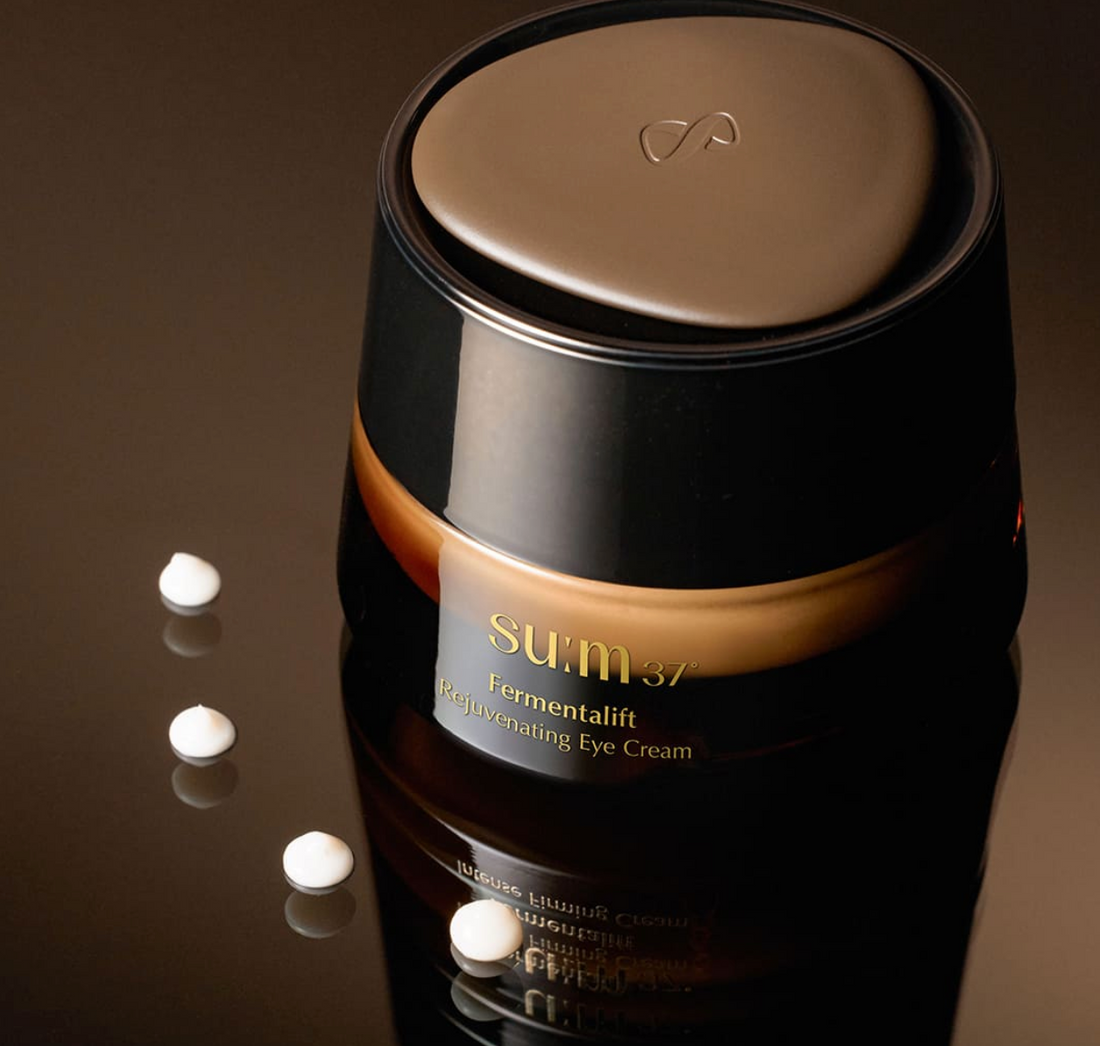
Bio-Fermentation Technology in Skincare: A Breakthrough
Share
Bio-Fermentation in Skincare: Unlocking the Secrets of Nature’s Skincare Powerhouse
Bio-fermentation has become one of the most talked-about processes in the skincare industry in recent years. With the growing trend towards natural and sustainable beauty, bio-fermentation has risen to the forefront as a game-changing technique in skincare formulations. But what exactly is bio-fermentation, and why is it used in skincare? How does the process work, and what makes it so beneficial for the skin? This in-depth beauty blog will take you through the fascinating world of bio-fermentation, explaining how it is used in skincare, the science behind it, its numerous benefits, and how it is refined and incorporated into skincare products.
1. What is Bio-Fermentation?
Bio-fermentation is a natural process where microorganisms, such as bacteria, yeast, or fungi, break down organic materials like sugars, carbohydrates, or proteins to produce beneficial compounds. This process is similar to fermentation used in food production, such as brewing beer or fermenting yogurt, but in the context of skincare, bio-fermentation involves the fermentation of plant-based ingredients, often with the aim of creating a more potent, bioavailable product.
In the world of skincare, bio-fermentation is often used to enhance the properties of natural ingredients by breaking them down into smaller, more absorbable molecules. These smaller molecules are more readily absorbed by the skin, making the active compounds more effective in treating various skin concerns. The microorganisms involved in the fermentation process also produce additional compounds, such as enzymes, vitamins, antioxidants, and acids, which further contribute to the skincare benefits of the resulting ingredient.
Bio-fermentation can be used to enhance many different plant-based ingredients, from fruits and herbs to grains and even algae. This process often results in ingredients that are more potent, easier for the skin to absorb, and less likely to cause irritation compared to their unfermented counterparts. The end products are often gentler on the skin, yet more effective in delivering nutrients and promoting overall skin health.
2. Why is Bio-Fermentation Used in Skincare?
There are several reasons why bio-fermentation has become a popular process in skincare. It offers a unique combination of benefits that align with the growing demand for natural, effective, and sustainable beauty solutions. Here are some key reasons why bio-fermentation is used in skincare:
-
Enhanced Absorption: One of the main reasons bio-fermentation is used in skincare is that it makes active ingredients more bioavailable. Fermentation breaks down large molecules into smaller, more easily absorbed compounds. This allows the skin to better absorb the nutrients, vitamins, and antioxidants that are produced during the fermentation process. By increasing absorption, bio-fermentation enhances the overall effectiveness of the ingredient.
-
Increased Potency: The fermentation process also increases the potency of plant-based ingredients. Fermentation can concentrate the beneficial compounds in plants, such as amino acids, peptides, and antioxidants, making them more powerful and effective for skin health. The process can also help activate dormant compounds that may not be readily available in their raw form.
-
Improved Skin Tolerance: Fermentation helps to break down plant compounds into smaller, more refined molecules, which often results in a gentler product that is less likely to cause irritation or sensitivity. For individuals with sensitive skin, bio-fermented ingredients tend to be much better tolerated than unfermented plant extracts. The process also reduces the likelihood of skin reactions, making bio-fermented skincare products ideal for people with reactive or delicate skin.
-
Creation of New Active Compounds: During the fermentation process, microorganisms produce new beneficial compounds that do not exist in the original plant material. These compounds may include enzymes, organic acids, peptides, and antioxidants, all of which can contribute to the improvement of skin texture, tone, and overall health. These newly created compounds often have powerful skincare benefits, such as boosting skin renewal, soothing inflammation, and improving skin elasticity.
-
Sustainability: Bio-fermentation is often seen as a more sustainable method for sourcing skincare ingredients. Since the process utilizes natural microorganisms to break down organic matter, it can reduce the need for synthetic additives and harmful chemicals. Moreover, the fermentation process can be done on plant-based materials that are renewable, reducing the environmental impact of sourcing skincare ingredients. Fermentation can also enhance the shelf life of ingredients, making them more stable and less reliant on preservatives.
-
Support for Skin Microbiome: Recent research has shown that the skin has its own microbiome—the community of microorganisms that live on the skin's surface. These microorganisms play an important role in maintaining skin health, protecting the skin from harmful pathogens, and regulating inflammation. Bio-fermented skincare ingredients can help support and balance the skin’s natural microbiome. By introducing beneficial probiotics and prebiotics, bio-fermented products help maintain a healthy microbial balance, improving skin’s resilience and overall function.
3. The Science Behind Bio-Fermentation in Skincare
Explore Fermentation in Skincare AgelessBeauty3000.com
The science behind bio-fermentation in skincare is rooted in the principles of microbiology and biochemistry. During fermentation, microorganisms like lactic acid bacteria, yeast, and fungi break down complex molecules in plant materials into simpler, more bioactive compounds. This breakdown occurs through a variety of enzymatic processes that release nutrients and beneficial compounds that were previously locked within the plant cells. Some of these compounds are naturally occurring in the plant, while others are byproducts of the fermentation process itself.
Here are some of the main steps involved in bio-fermentation:
-
Fermentation Initiation: The process begins by introducing microorganisms to the raw plant material. These microorganisms may include naturally occurring bacteria, yeast, or fungi, which are chosen for their ability to break down specific types of molecules within the plant material.
-
Enzymatic Breakdown: As the microorganisms begin to interact with the plant material, they release enzymes that break down complex molecules such as starches, proteins, and lipids into simpler, more usable forms. For example, carbohydrates are converted into organic acids like lactic acid, and proteins are broken down into amino acids and peptides.
-
Creation of New Compounds: During the fermentation process, microorganisms can also produce organic acids like lactic acid and citric acid, which have exfoliating and skin-renewing properties. Antioxidants such as polyphenols and flavonoids are often produced, offering protection against environmental damage. Other compounds such as polysaccharides may also be produced, which are beneficial for hydration and skin barrier repair.
-
Fermentation byproducts: Fermentation produces byproducts that contribute to the final skincare ingredient's properties. These byproducts can include prebiotics, which feed the beneficial bacteria on the skin's surface, and probiotics, which help balance the skin’s microbiome and improve its overall health. The byproducts of fermentation can enhance the effectiveness of the skincare ingredient, making it more potent and beneficial for the skin.
-
Filtration and Refining: Once fermentation is complete, the product goes through a refinement process to ensure that only the beneficial compounds remain in the final formulation. This may involve filtration, centrifugation, or distillation to separate the active ingredients from any leftover residues. The purified ingredients are then concentrated to create a potent extract that is ready to be incorporated into skincare products.
4. The Benefits of Bio-Fermented Ingredients in Skincare
Bio-fermented ingredients are praised for their ability to enhance the efficacy and potency of skincare formulations. Here are some of the key benefits that bio-fermented ingredients bring to skincare:
-
Hydration: Bio-fermented ingredients help to maintain the skin's moisture balance by providing moisture-binding compounds such as polysaccharides and hyaluronic acid. These ingredients help draw moisture into the skin and maintain hydration, preventing dry or flaky skin.
-
Anti-Aging: The organic acids produced during fermentation, like lactic acid, help to exfoliate the skin, removing dead skin cells and promoting skin renewal. The presence of antioxidants such as polyphenols also helps to neutralize free radicals, reducing oxidative stress and preventing premature aging. By stimulating collagen production and improving skin elasticity, bio-fermented ingredients contribute to smoother, firmer, and younger-looking skin.
-
Soothing and Calming: The enzymes and byproducts produced during bio-fermentation can have anti-inflammatory effects, soothing irritated or sensitive skin. This makes bio-fermented ingredients particularly beneficial for those with conditions like eczema, rosacea, or acne, where inflammation is a primary concern.
-
Skin Barrier Repair: Many bio-fermented ingredients contain compounds that support the skin’s natural barrier function. Polysaccharides produced during fermentation can help reinforce the skin’s protective barrier, preventing water loss and improving skin resilience. This is particularly helpful for those with compromised skin barriers, as it helps to lock in moisture and prevent further irritation.
-
Brightening and Even Skin Tone: Bio-fermented ingredients can help brighten the complexion by exfoliating dead skin cells and reducing hyperpigmentation. Organic acids like lactic acid and citric acid gently exfoliate the skin, revealing a more radiant and even skin tone. Additionally, bio-fermentation can stimulate collagen production, contributing to firmer, more youthful skin with an even tone.
-
Enhanced Skin Absorption: As mentioned earlier, bio-fermentation breaks down larger molecules into smaller ones, making the active compounds more easily absorbed by the skin. This increased absorption ensures that the skin benefits from higher concentrations of vitamins, antioxidants, and amino acids, leading to improved results from skincare products.
5. How Bio-Fermented Ingredients Are Incorporated into Skincare Products
Once bio-fermented ingredients have been extracted and refined, they can be incorporated into a wide variety of skincare products. Bio-fermented ingredients are often included in products like serums, creams, masks, toners, and cleansers, where they can deliver their skin-enhancing benefits. The process of incorporating bio-fermented ingredients into skincare formulations typically involves the following steps:
- Formulation Development: After refining the bio-fermented ingredients, they are combined with other beneficial ingredients, such as moisturizers, antioxidants, and preservatives, to create a complete skincare formulation. The ingredients are
Explore Skincare AgelessBeauty3000.com
SU:M37 | Fermentalift Moisturizing Emulsion
SU:M37 | Fermentalift Rejuvenating Eye Cream
